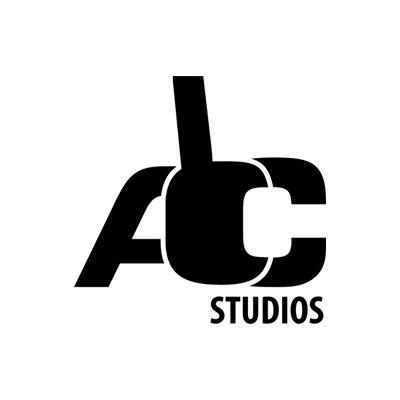Sponsored
The firm Biswajit Sarkar was established in 1990 in Kolkata, India as an Intellectual Property Law Firm. Our exposure to the complexities in the ambit of Intellectual Property Law gave us the impetus and inspiration to diversify into other streams such as Corporate Affairs, International Trade and Information Technology.
- 8 Posts
- 2 Photos
- 0 Videos
- Male
- 16/11/1975
- Followed by 0 people
Recent Updates
- Copyright Infringement and Music?
Music is an artistic work which falls into the purview of copyright protection. Nowadays, music lovers can easily stream music. Even restaurants, bars and lounges play music to entertain guests, either through hiring DJs or by playing music through sound systems. However, if such streaming of copyrighted music is done without obtaining license from the copyright holder, then it amounts to copyright infringement.
https://www.biswajitsarkar.com/blog/copyright-infringement-and-music.htmlCopyright Infringement and Music? Music is an artistic work which falls into the purview of copyright protection. Nowadays, music lovers can easily stream music. Even restaurants, bars and lounges play music to entertain guests, either through hiring DJs or by playing music through sound systems. However, if such streaming of copyrighted music is done without obtaining license from the copyright holder, then it amounts to copyright infringement. https://www.biswajitsarkar.com/blog/copyright-infringement-and-music.htmlWWW.BISWAJITSARKAR.COMCopyright Infringement and MusicCopyright infringement disrupts the exclusive right of the copyright holder, who is usually the music producer in the case of musical works, to gain commercial benefits from their copyright protected works. Copyright involves the exclusive right to reproduce and distribute the original work.0 Comments 0 Shares 364 Views 0 ReviewsPlease log in to like, share and comment! - Copyright Infringement in edited photographs?
Photographs are under the subject matter of copyright which means that photographs are artistic works that attract copyright protection. The author of an artistic work, in case of a photograph, is the author who has originally captured the photograph, and is deemed to be the original owner of the photograph and thereby made the holder of copyright.
In India, photographs enjoy copyright protection under Section 2 (c) i of the Copyright Act, 1957, which mentions the certain types of artistic works granted copyright protection in India. In USA, the person who presses the shutter button of a camera becomes the copyright holder of the photograph, in certain cases the person who sets up the camera has also been held as the copyright holder of the photograph.
More Info:- https://www.biswajitsarkar.com/blog/copyright-infringement-in-edited-photographs.htmlCopyright Infringement in edited photographs? Photographs are under the subject matter of copyright which means that photographs are artistic works that attract copyright protection. The author of an artistic work, in case of a photograph, is the author who has originally captured the photograph, and is deemed to be the original owner of the photograph and thereby made the holder of copyright. In India, photographs enjoy copyright protection under Section 2 (c) i of the Copyright Act, 1957, which mentions the certain types of artistic works granted copyright protection in India. In USA, the person who presses the shutter button of a camera becomes the copyright holder of the photograph, in certain cases the person who sets up the camera has also been held as the copyright holder of the photograph. More Info:- https://www.biswajitsarkar.com/blog/copyright-infringement-in-edited-photographs.htmlWWW.BISWAJITSARKAR.COMCopyright Infringement in edited photographs - Biswajit Sarkar BlogPhotographs are under the subject matter of copyright which means that photographs are artistic works that attract copyright protection.0 Comments 0 Shares 206 Views 0 Reviews - Role of a Patent Attorney
A patent is an exclusive right granted to the owner of an invention, that allows him to prevent others from making, using, or selling the invention without the consent of the owner. The patent law in India is governed by The Patent Act, 1999 (hereinafter referred to as the Act).
A patent is territorial in nature. It is granted by the Central Government and is enforceable within the Indian Territory. A Patent is granted for any product or process invention for a period of 20 years.
In order to apply for a patent, it is essential to file a patent application under the Chapter III of the Patent Act. Statutory protection of patent rights in India is administered by the Office of the Controller General of Patents, Designs and Trade Marks, a government agency which reports to the Department of Industrial Policy and Promotion, under the Ministry of Commerce and Industry.
The application procedure for a patent is quite nuanced. The drafting of a patent application requires immense knowledge of science, law, and language. A patent attorney specializes in a particular science field and understands the new technologies. He is thus, able to explain the invention to others. The disclosure of the invention is a mandatory and imperial step in the patent application procedure.
A patent attorney is qualified to advise clients about patents, along with other allied intellectual property rights. He assists the owners or inventors in filing the patent application and helps them obtain patent, as granted by the patent offices from around the world. From individuals to start-ups to mega corporations, every client has different needs when it comes to patents. A patent attorney is apt in adapting to the diverse requirements of each client while simultaneously being up to date with the new and emerging technologies.
A patent attorney assists a client by performing a myriad of tasks required for a patent grant. This includes drafting the specifications and claims. Drafting claims requires a technical background in the respective field of the invention. It also requires an expertise in language and law. The process of patent application also requires ability to analyses technical documents to differentiate between the prior art and the new invention.
Patents are a brilliant tool for commercialization and can be a major asset in any industry. Their proper application is of paramount importance. This is usually done by licensing the patent. A patent attorney has the requisite skills in drafting such license contracts. They are also qualified in the industry standards and practices and can better advice their clients in the workings of a patent.
A patent attorney is also skilled in the analysis of the existing patent environment. They advise their clients by assessing the risk of infringing any existing patents. In case of opposition or infringement, the patent attorney also involves in litigation and argue on behalf of the clients.
The patent attorneys monitor and keep a check on any potential infringement of the patents of their clients. They aid and advice their clients about the best course of action in case of a third- party infringement.
Since a patent is territorial in nature, a patent attorney can council their clients in getting patent protection in other countries as well. This can be done by filing an application under the Paris Convention (Convention Application) or the Patent Cooperation Treaty (PCT Application).
Conclusion
A patent registration is a vital step in the commercialization of an invention. It helps prevent others from infringing upon ones invention. While anyone can file a patent application, it is always advisable to consult and hire a patent attorney as they have a more nuanced understanding of the application procedure. The management and working of a patent is a time consuming and often complicated task. Navigating the deep and turbulent waters of the international and national patent regime requires professional skills. A patent attorney will bring such skills to the table.Role of a Patent Attorney A patent is an exclusive right granted to the owner of an invention, that allows him to prevent others from making, using, or selling the invention without the consent of the owner. The patent law in India is governed by The Patent Act, 1999 (hereinafter referred to as the Act). A patent is territorial in nature. It is granted by the Central Government and is enforceable within the Indian Territory. A Patent is granted for any product or process invention for a period of 20 years. In order to apply for a patent, it is essential to file a patent application under the Chapter III of the Patent Act. Statutory protection of patent rights in India is administered by the Office of the Controller General of Patents, Designs and Trade Marks, a government agency which reports to the Department of Industrial Policy and Promotion, under the Ministry of Commerce and Industry. The application procedure for a patent is quite nuanced. The drafting of a patent application requires immense knowledge of science, law, and language. A patent attorney specializes in a particular science field and understands the new technologies. He is thus, able to explain the invention to others. The disclosure of the invention is a mandatory and imperial step in the patent application procedure. A patent attorney is qualified to advise clients about patents, along with other allied intellectual property rights. He assists the owners or inventors in filing the patent application and helps them obtain patent, as granted by the patent offices from around the world. From individuals to start-ups to mega corporations, every client has different needs when it comes to patents. A patent attorney is apt in adapting to the diverse requirements of each client while simultaneously being up to date with the new and emerging technologies. A patent attorney assists a client by performing a myriad of tasks required for a patent grant. This includes drafting the specifications and claims. Drafting claims requires a technical background in the respective field of the invention. It also requires an expertise in language and law. The process of patent application also requires ability to analyses technical documents to differentiate between the prior art and the new invention. Patents are a brilliant tool for commercialization and can be a major asset in any industry. Their proper application is of paramount importance. This is usually done by licensing the patent. A patent attorney has the requisite skills in drafting such license contracts. They are also qualified in the industry standards and practices and can better advice their clients in the workings of a patent. A patent attorney is also skilled in the analysis of the existing patent environment. They advise their clients by assessing the risk of infringing any existing patents. In case of opposition or infringement, the patent attorney also involves in litigation and argue on behalf of the clients. The patent attorneys monitor and keep a check on any potential infringement of the patents of their clients. They aid and advice their clients about the best course of action in case of a third- party infringement. Since a patent is territorial in nature, a patent attorney can council their clients in getting patent protection in other countries as well. This can be done by filing an application under the Paris Convention (Convention Application) or the Patent Cooperation Treaty (PCT Application). Conclusion A patent registration is a vital step in the commercialization of an invention. It helps prevent others from infringing upon ones invention. While anyone can file a patent application, it is always advisable to consult and hire a patent attorney as they have a more nuanced understanding of the application procedure. The management and working of a patent is a time consuming and often complicated task. Navigating the deep and turbulent waters of the international and national patent regime requires professional skills. A patent attorney will bring such skills to the table.0 Comments 0 Shares 514 Views 0 Reviews - Discover The International Copyright Rules That Apply
The United States Copyright Act of 1970 was enacted to protect creative works from unauthorised use or copyright infringement. Even though federal law prohibits people from copying, publishing, transmitting, exhibiting, distributing, modifying, displaying, or otherwise using others' original creative expressions (for profit or not), copyright infringement—both intentional and unintentional—can and does happen. International copyright restrictions are commonly confused with trademarks, patents, and licences. Even though all of these are forms of intellectual property, copyrights are perhaps the easiest to get and violate—intentionally or unintentionally.
Visit us : https://www.biswajitsarkar.com/blog/copyright-infringement-2.htmlDiscover The International Copyright Rules That Apply The United States Copyright Act of 1970 was enacted to protect creative works from unauthorised use or copyright infringement. Even though federal law prohibits people from copying, publishing, transmitting, exhibiting, distributing, modifying, displaying, or otherwise using others' original creative expressions (for profit or not), copyright infringement—both intentional and unintentional—can and does happen. International copyright restrictions are commonly confused with trademarks, patents, and licences. Even though all of these are forms of intellectual property, copyrights are perhaps the easiest to get and violate—intentionally or unintentionally. Visit us : https://www.biswajitsarkar.com/blog/copyright-infringement-2.htmlWWW.BISWAJITSARKAR.COMCopyright InfringementIn this blog, we take up copyright infringement and how it affects authors around the world. We also look at remedies in case of such infringement.0 Comments 0 Shares 259 Views 0 Reviews - Learn About The Trade Secret Intellectual Property
A trade secret intellectual property is essentially anything confidential that confers value to its owner due to that confidentiality. The owner of an invention has sole ownership rights after it is patented. You have the right to prevent others from exploiting or selling your idea, and any infringement resulting from this is actionable. One can start an FTO study by looking up issued and pending patents in the pertinent patent literature. This task could not be as straightforward, and it might call for the assistance of a professional IP firm that provides such services.
Visit us : https://www.biswajitsarkar.com/blog/patents-and-freedom-to-operate.htmlLearn About The Trade Secret Intellectual Property A trade secret intellectual property is essentially anything confidential that confers value to its owner due to that confidentiality. The owner of an invention has sole ownership rights after it is patented. You have the right to prevent others from exploiting or selling your idea, and any infringement resulting from this is actionable. One can start an FTO study by looking up issued and pending patents in the pertinent patent literature. This task could not be as straightforward, and it might call for the assistance of a professional IP firm that provides such services. Visit us : https://www.biswajitsarkar.com/blog/patents-and-freedom-to-operate.htmlWWW.BISWAJITSARKAR.COMPatents And Freedom To OperateKnow more about the Law on Patents And Freedom To Operate, After an invention is patented, the inventor has exclusive rights over the invention.0 Comments 0 Shares 138 Views 0 Reviews - Discover The International Copyright Law That Apply
To prevent unauthorized use of or copyright infringement on creative works, the United States Copyright Act of 1970 was passed. Even while copyright infringement—both deliberate and unintentional—can and does happen, federal law bans persons from copying, publishing, transmitting, exhibiting, distributing, editing, displaying, or otherwise utilizing others' original creative expressions (for profit or not). Trademarks, patents, and licenses are frequently mixed up with international copyright law. All of these are examples of intellectual property, but copyrights are possibly the most straightforward to obtain and violate, whether knowingly or unknowingly.
View our most recent blog post : https://sites.google.com/view/trademark-bs/what-should-you-learn-about-international-copyright-law
Discover The International Copyright Law That Apply To prevent unauthorized use of or copyright infringement on creative works, the United States Copyright Act of 1970 was passed. Even while copyright infringement—both deliberate and unintentional—can and does happen, federal law bans persons from copying, publishing, transmitting, exhibiting, distributing, editing, displaying, or otherwise utilizing others' original creative expressions (for profit or not). Trademarks, patents, and licenses are frequently mixed up with international copyright law. All of these are examples of intellectual property, but copyrights are possibly the most straightforward to obtain and violate, whether knowingly or unknowingly. View our most recent blog post : https://sites.google.com/view/trademark-bs/what-should-you-learn-about-international-copyright-lawSITES.GOOGLE.COMBiswajit Sarkar - what-should-you-learn-about-international-copyright-lawThere is no international copyright law! Every nation has domestic copyright rules that govern its residents and the usage of foreign content within that nation. It enables authors, publishers, and content owners from several nations to enjoy copyright protection in nations other than their own.0 Comments 0 Shares 175 Views 0 Reviews - 0 Comments 0 Shares 116 Views 0 Reviews
- 0 Comments 0 Shares 119 Views 0 Reviews
More Stories

















